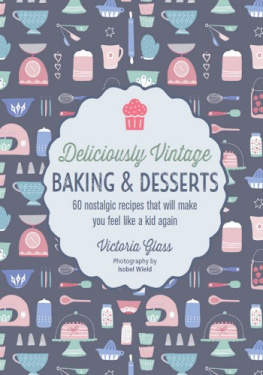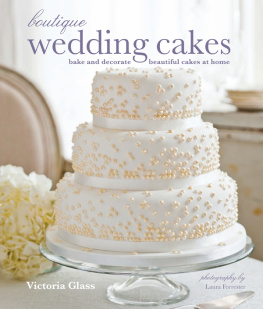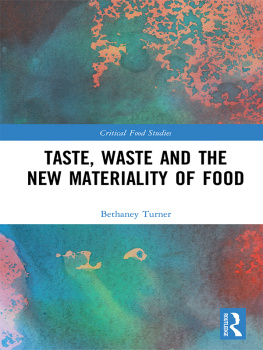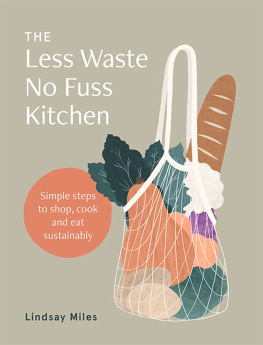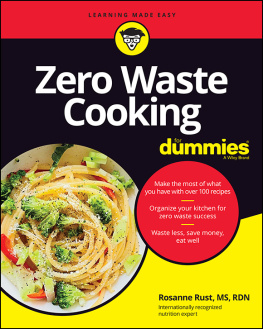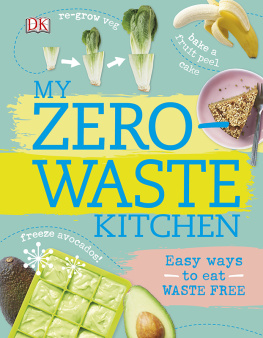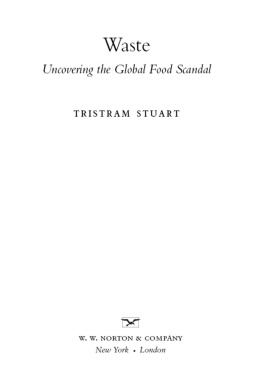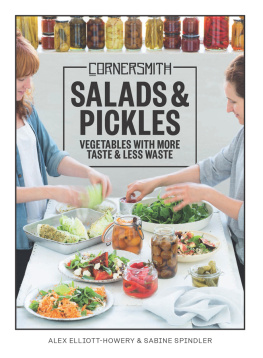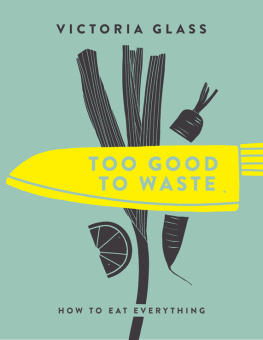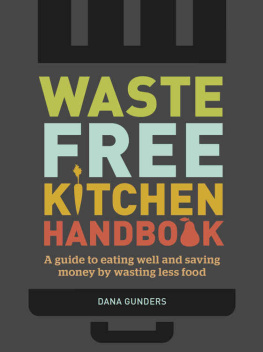Victoria Glass - Too Good To Waste: How to Eat Everything
Here you can read online Victoria Glass - Too Good To Waste: How to Eat Everything full text of the book (entire story) in english for free. Download pdf and epub, get meaning, cover and reviews about this ebook. year: 2017, publisher: Nourish, genre: Home and family. Description of the work, (preface) as well as reviews are available. Best literature library LitArk.com created for fans of good reading and offers a wide selection of genres:
Romance novel
Science fiction
Adventure
Detective
Science
History
Home and family
Prose
Art
Politics
Computer
Non-fiction
Religion
Business
Children
Humor
Choose a favorite category and find really read worthwhile books. Enjoy immersion in the world of imagination, feel the emotions of the characters or learn something new for yourself, make an fascinating discovery.

- Book:Too Good To Waste: How to Eat Everything
- Author:
- Publisher:Nourish
- Genre:
- Year:2017
- Rating:4 / 5
- Favourites:Add to favourites
- Your mark:
- 80
- 1
- 2
- 3
- 4
- 5
Too Good To Waste: How to Eat Everything: summary, description and annotation
We offer to read an annotation, description, summary or preface (depends on what the author of the book "Too Good To Waste: How to Eat Everything" wrote himself). If you haven't found the necessary information about the book — write in the comments, we will try to find it.
Too Good To Waste: How to Eat Everything — read online for free the complete book (whole text) full work
Below is the text of the book, divided by pages. System saving the place of the last page read, allows you to conveniently read the book "Too Good To Waste: How to Eat Everything" online for free, without having to search again every time where you left off. Put a bookmark, and you can go to the page where you finished reading at any time.
Font size:
Interval:
Bookmark:
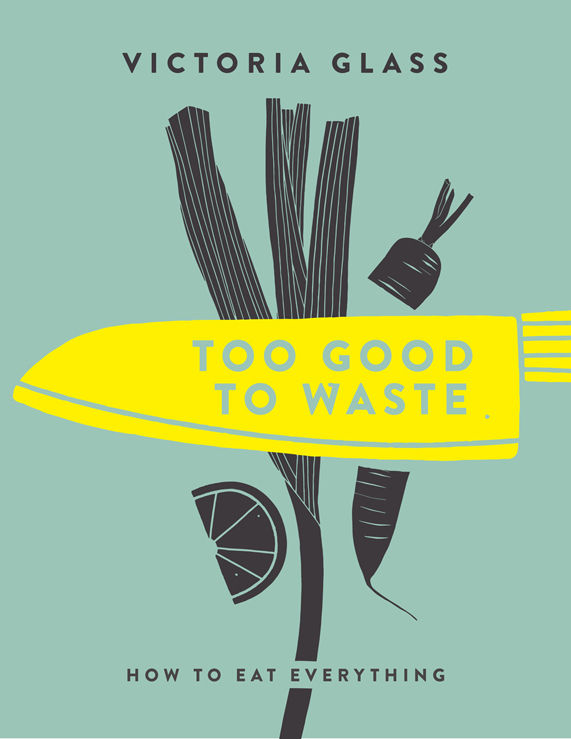

VICTORIA GLASS is a cook, food writer and author of five books including Baking Mash-Up and Deliciously Chocolatey . She has cooked her way from AZ on her blog, Alphabet Soup, is the founder of Victorias Cake Boutique creating celebration cakes for a range of celebrity clients, and was the food writer in residence at The Roald Dahl Museum & Story Centre in Buckinghamshire, UK. She would never turn her nose up at a leftover.

CONTENTS
INTRODUCTION
We all know that when life gives us lemons, were supposed to make lemonade but what do you do with all those squeezed out lemon skins? Too Good To Waste thinks beyond the compost to extract every last edible drop from your ingredients.
Waste not, want not is an old adage that we seem to have forgotten. The principle isnt new, but this book offers delicious modern ways to live by it. Minimizing waste will save you money, but this is not an austerity cookbook. You will reduce your carbon footprint, but being an eco-warrior isn't a requirement. Im no saint, but thats OK; this isnt a book for saints. It finds a home for food that would otherwise go in the bin, but it's not just a guide to using up leftovers. We all want to reduce our food waste, but never at the expense of flavour.
I am a working mother of a young child who refuses to sleep and, consequently, spend most of my days wading through a fog of tiredness with the low-grade hum of stress twitching at the back of my eyeballs. There is always too much to do and too much to think about, and my fridge all too frequently becomes the gateway to the bin; somewhere that leftover food lingers for a while, forgotten, before passing the point of no return.
When it comes to food waste, I am not going to pretend to be faultless. I am far too chaotic to be irreproachable and far too disorganised to always plan ahead. I simply havent got time to go miles out of my way to get a third off a punnet of blueberries, and poor impulse control makes me a prime target for buy-one-getone-free supermarket offers. Life is busy and good intentions fall by the wayside, but that wont stop me trying to be better.
Reducing waste neednt be a chore, just try to keep an eye on whats languishing at the back of the refrigerator. Instead of traipsing round the supermarket in a torpor once a week to do the big shop, try to pick up bits and pieces as and when you need them. This way you wont have the problem of over-cramming and there will be space to actually see what needs using up first. Good refrigerator rotation gets tricky with one large weekly shop. Its easy to unload in a hurry and push all that came before to the back of the fridge to quietly expire.
Your produce will last longer if you store your food properly. Make sure your refrigerator is cold enough to keep food fresh, but not so cold that its giving the stuff at the back freezer-burn. Keep fruits and vegetables separately the ethylene gas emitted from many fruits acts as a ripening hormone leading to speeded-up spoilage for the produce around it. Keep garlic out of the fridge and dont squash too many things in the salad crisper vegetables like to breathe. Make the most of your freezer and a marker pen, so defrosting dinner doesnt become a game of casserole roulette. Minimal admin now will bring you the gratification of convenience later.


When it comes to reducing waste, you can find uses for even the least likely contenders. Cheese rinds impart an extra savoury layer to soups and stews; fruit stones can be used to flavour syrups, vinegars and homemade liqueurs they have a mild bitter flavour, similar to almonds; onion skins can be made into a natural dye for boiled eggs at Easter and are technically edible for the truly crusading among you.
I am fairly cavalier about use-by dates and wholly impractical instructions on jars of preserves like consume within 5 days of opening are routinely ignored. Unless eggs float in water, theyre still good; you dont need a printed date stamp to tell you otherwise. Please do not mistake my insouciance for irresponsibility. I would never risk malodorous mutton, but it will take more than a limp lettuce or bendy carrot to scupper my supper.
Where food safety is concerned, a little common sense goes a long way. I would never advocate going as far as scraping the mould off the top of anything and eating whats beneath. Some moulds are harmless, but some are not and, unless you are a biochemist, I would recommend exercising caution. For every braying bore who proudly boasts that they are still here to tell the tale after listing all the rotten foodstuffs they once ate, there is another person who ended up in a hospital bed. Revive that limp lettuce, but eating everything shouldnt be taken so far that you find yourself trimming fur off fetid meat before throwing it in the oven. There are limits.
Even the smallest changes in habits can have dramatic results. The index in this book has been designed to make these small changes even easier to implement. You can look up not just eggs, but specifically the whites, yolks and even shells. You can dip into the back to find out what can be done with sour milk or how to make a feast from last nights mashed potato. Let this be a starting point for using up all sorts of things you happen to find leftover or wilting in the kitchen. And not just for virtuous reasons, either: it is never a hardship to rescue olive brine to make Dirty Martinis. Less waste; more taste: life is better when you eat everything.

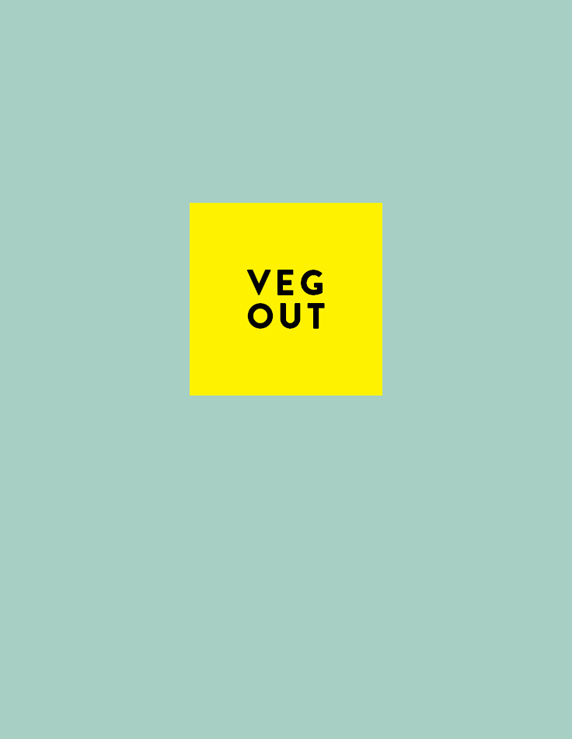
IN POD WE TRUST
There is no getting around the fact that podding broad/fava beans is a boring and laborious process. It is best undertaken with the distraction of trashy television in the background. Even then you may find that you still seem only to have collected enough to fill half a small bowl. It would hardly seem worth the effort, but, as Roald Dahl once said, a plateful of tender, young broad beans is the ultimate joy.
When broad beans and peas are very young and fresh, you can eat them whole, like mangetout/snow peas, especially brushed with oil and griddled. You can simply pod very young broad beans, but otherwise youll need to double-pod them, or risk grittiness where creaminess is wanted. To do so, pod the beans, then blanch them in boiling water for 2 minutes. Drain and refresh in cold water, then gently squeeze the beans out of their leathery skins. Cool the water and use it on your plants.
And why would you want to throw away the pods when they are so delicious turned into crispy fritters or aromatic soups? You might feel unsure of the fuzzy linings, but they are perfectly safe to eat. Just cut off any stringy bits and get cooking.
BEAN POD, COCONUT & LIME SOUP
Next pageFont size:
Interval:
Bookmark:
Similar books «Too Good To Waste: How to Eat Everything»
Look at similar books to Too Good To Waste: How to Eat Everything. We have selected literature similar in name and meaning in the hope of providing readers with more options to find new, interesting, not yet read works.
Discussion, reviews of the book Too Good To Waste: How to Eat Everything and just readers' own opinions. Leave your comments, write what you think about the work, its meaning or the main characters. Specify what exactly you liked and what you didn't like, and why you think so.

